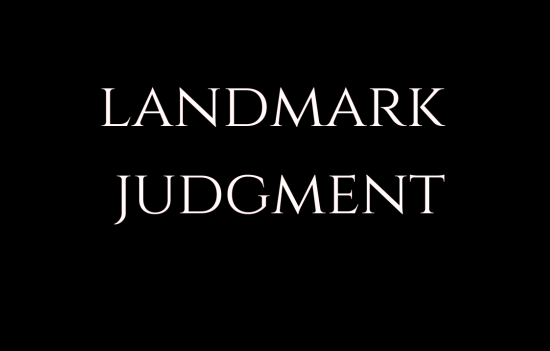CASE BRIEF
APPELLANT- State of Punjab and Anr.
RESPONDENT- Mohammed Iqbal Bhatti
Decided on- 31 July, 2009
CASES REFERRED-
- I.T.C. Bhadrachalam Paperboards and Anr. v. Mandal Revenue Officer, A.P. and Ors. (1996) 6 SCC 634
- Mansukhlal vithaldas Chauhan v. State of Gujarat [(1997) 3 SCC 622]
- State (Anti Corruption Branch) Govt. of N.C.T. of Delhi and Anr. v. Dr. R.C. Anand and Anr. [(2004) 4 SCC 615]
STATUTES REFERRED-
- Code of Criminal Procedure
- Constitution of India
- Prevention of Corruption Act, 1988
- Rules of Executive Business
FACTS OF THE CASE-
- That the Respondent was working as a Block Development and Panchayat Officer and an FIR was lodged against him under Sections 7 and 13(2) of the Prevention of Corruption Act, 1988.
- That after the investigation was completed sanction was sought from the competent authority (Department of Rural Development and Panchayat) on 15.12.2002 to be able to prosecute the Respondent, which was refused.
- That on 14.09.2004, the matter was again placed before the authority for reconsideration and the sanction was granted.
- That the Respondent filed a Writ Petition in the Punjab and Haryana High Court challenging the validity of the order of the authority and the HC allowed the petition, following which the State of Punjab appealed in the Supreme Court against the HC’s decision.
ISSUE INVOLVED-
Whether the State has any power of review in the matter of grant of sanction in terms of Section 197 of the Code of Criminal Procedure?
CONTENTIONS OF PARTIES-
- APPELLANT
It was argued by the Counsel for Appellants that the jurisdiction to grant sanction is an administrative power; therefore, the State government has every power to review its earlier sanction. It does not exhaust after its one-time exercise.
- RESPONDENT
- It was submitted that the order was passed by the State on the same grounds as before, therefore it stands illegal now.
- The Counsel urged that since the Respondent is a public servant, he was appointed by the Governor of Punjab. Therefore, he cannot be removed from his post except by the prior sanction of the Government under Section 197 of the CrPC.
- He also urged that once the sanction is refused to be granted, no appeal lies against such refusal.
JUDGMENT-
The Hon’ble Court also observed that the Vigilance Department had not contended the order before, when it was passed. It had only requested reconsideration of the said order when a new government came in.
Therefore, Supreme Court after a careful perusal of all facts and records before it, held that no fresh material was placed before the sanctioning authority, nor had it failed to to take into consideration a relevant fact; even the High Court had held that there was nothing new to show as to why reconsideration of the order was required.
Therefore, the appeal was dismissed as devoid of any merit.
RULE OF LAW-
The main question in dispute in the present case was whether the State government, while granting a sanction under Section 197 of the CrPC can review its previous orders based on the same material on record.
CONCLUSION-
What can be understood from this case is the misuse of the power of the State Government. Although the refusal of sanction was ordered in 2002, no challenge was made in a long time against it.
Only after the change of the government in power in 2004 the review was filed before the authority. Thus, the Apex Court was right in upholding the decision of the High Court which declined the validity of the order sanctioned.

